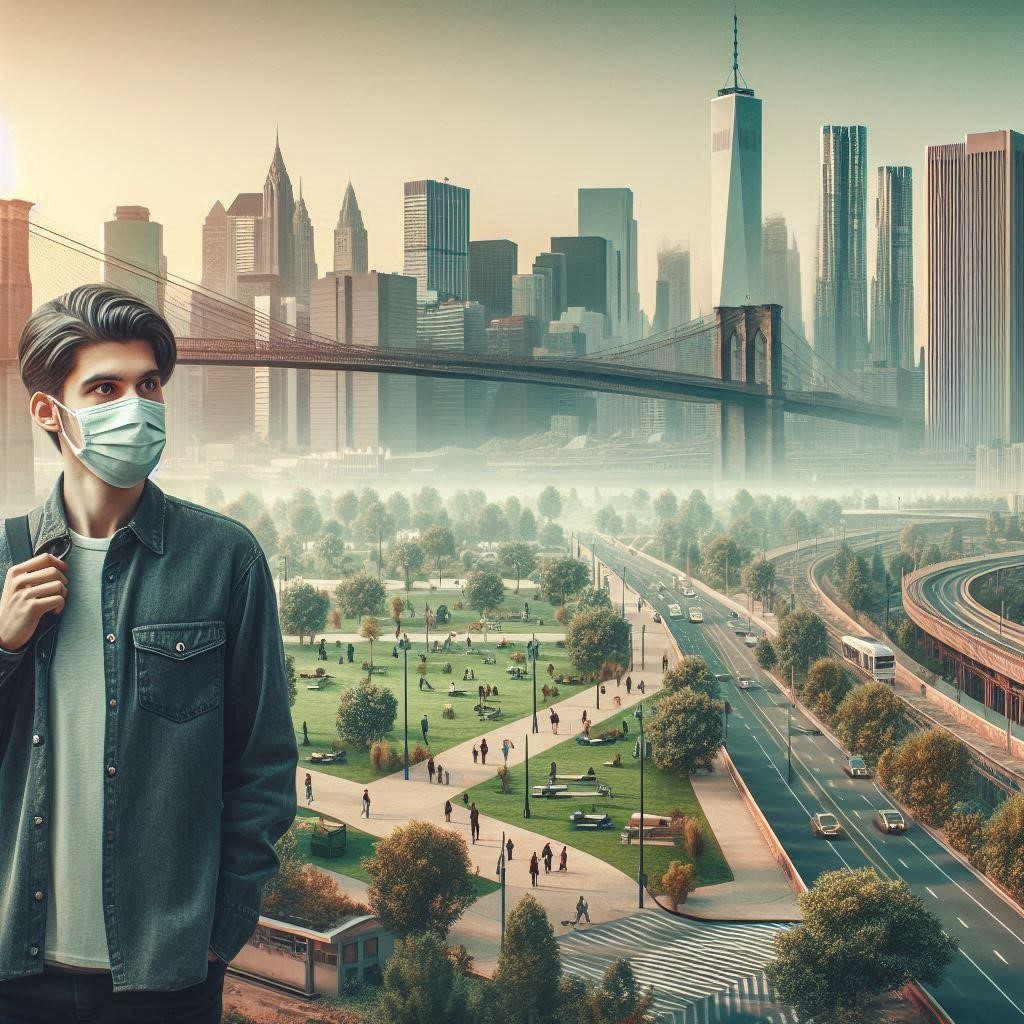Imagine you open your window and, instead of being greeted by a wave of smog, you are faced with an orchestra of birds chirping a hymn to clean air. Clean air is like a rare species of unicorn in some cities: everyone talks about it, but seeing it is another story!
What are air pollutants?
World Clean Air Day, celebrated every year on 7 September, is a global initiative to raise awareness of the importance of aclean atmosphere.
The main sources of air pollution can be divided into natural and anthropogenic.
Natural ones include gases emitted by the biological processes of living beings, such as carbon dioxide from human respiration or methane from cattle digestion. There is also a phenomena, the volcanic eruptions that release toxic gases and ash into the atmosphere.
On the other hand, anthropogenic sources, i.e. those caused by human activity, have a significant impact on air pollution.
The combustion of fossil fuels, both for energy production and transport, is a major source of pollutants such as sulphur dioxide and nitrogen oxides. These contribute to the formation of acid rain and photochemical smog.
Industry, with its production processes that often involve the use of fossil fuels, also emits harmful substances.
Domestic and commercial heating, especially when based on biomass or coal combustion, releases particulate matter and gases that worsen air quality.
Agriculture, through the use of fertilisers and pesticides, andlivestock farming, through the production of methane, are additional sources of air pollutants.
Finally, waste, especially when not properly managed, can generate methane and other harmful gases, and contribute to the creation of secondary particulate matter.
Air policies
The European Union is paying attention to the issue with the European Green Deal. It includes a review of air quality regulations to bring them into line with World Health Organisation recommendations.
Attention is also focused on topics related to renewable energy andenergy efficiency, with directives and proposals.
The Emission Trading Scheme (E TS ) also aims to incentivise reductions in atmospheric emissions through emissions trading, in a real European market.
In Italy, despite some difficulties in meeting the pollution limits set by the EU, measures have been taken to reduce emissions; the country will receive EUR 42.7 billion from the EU to promote sustainable growth, employment and modernisation.
The National Integrated Energy and Climate Plan (PNIEC) includes a series of measures to reduce CO2 emissions, increase the use of renewable energies and improve energy efficiency. Its goals are ambitious, from the decarbonisation of transport, to the development ofgreen hydrogen, from the renovation of buildings, to the use of cutting-edge technologies for sustainability and impact.
Air, a health issue
Air quality is a public health issue that concerns us all.
It is true that citizens have the right to breathe clean air and that not enough is being done worldwide to improve it.
Avoiding exposure during pollution peaks and using home air purifiers are practices that can be helpful, as is adopting a diet rich in antioxidants to strengthen the immune system, but they are only buffer solutions.
Supporting sustainable environmental policies and engaging in urban forestation initiatives can have a significant impact on our cities, in environmental terms but also in terms of social cohesion and caring for ‘everyone’s’ spaces.
The adoption of sustainable behaviour, such as the use of environmentally friendly means of transport, not only improves our health, but also contributes to streamlining city traffic, with great gains in terms of time, noise pollution and road maintenance.
These initiatives represent important steps towards a more sustainable future and cleaner air.
However, it is essential that states are responsive in implementing and reinforcing environmental policies, and that we citizens take responsibility for supporting and adopting sustainable practices, reasonably changing the way we live and move on this planet.
Play for the planet!
